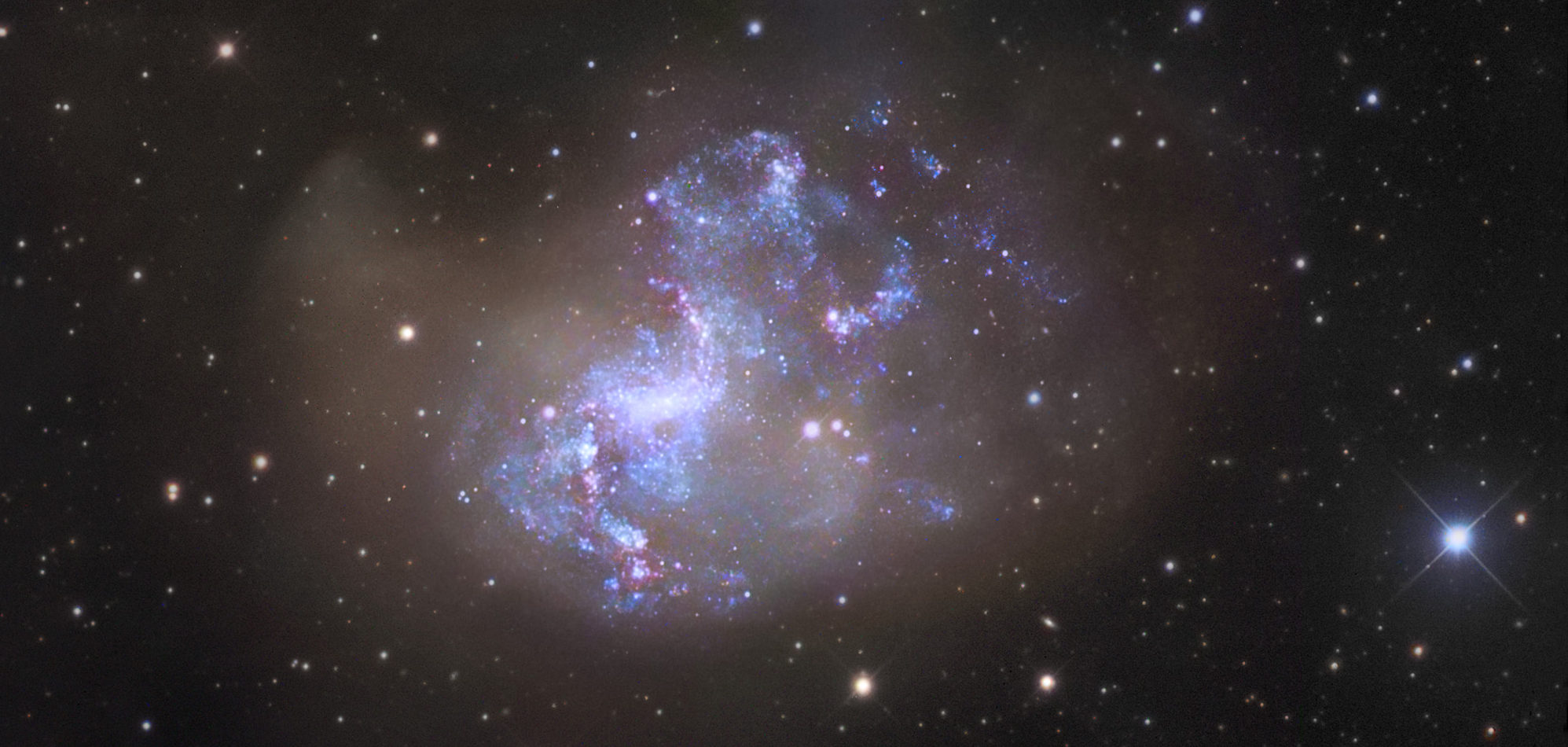I had an interesting conversation recently relating to how we can teach astronomy in a way that allows students to come away with an understanding of the process rather than just the busy work. In particular we were discussing how to teach the shapes of galaxies (The Hubble Classification) without just telling students to look at a picture and decide if it looked like a spiral or elliptical. I enjoyed this discussion because my friend brought up an excellent analogy for what it is like to study the universe.
Let’s say some distant alien species had the opportunity to visit Earth. However, they were only on Earth for a week or so. Could they, and if so, how could they determine the life cycle of a human?
This small glimpse into the lifetime of a human [an average human lives through 4160 weeks] would not show them how a human ages if they focused on one particular human. Instead, to understand the wide range of ages the aliens would need to look at a large sample of humans, of all ages, and study that sample as a whole.
They could compare the babies to the elderly, study the relationship between the teens and middle-aged. They could note the progression of social behavior from toddler to preteen to young adult. Compiling these observations would be the only way, in only a week, to establish a model of the typical “human lifetime”.
This is exactly what we as humans must do to study the universe. Our life time, and frankly even the time between when we evolved to what we call humans to now, is exceedingly short in relation to the time scales for the processes in the universe. Stars live for millions of years. It takes even light billions of years to travel to us from the outer reaches of the universe we can observe. We get only a glimpse of what the universe looks like right now. [Yes, looking ‘far away’ in the universe results in ‘looking back in time’ but this is would be like looking at an old photograph for our analogous alien friends. They see a snapshot at that time. They cannot observe the process of say, going through puberty, just that awkward picture of you from seventh grade.]
So, we must take the same approach – look at a large sample of things. We look at hundreds of stars, compare them to each other and try to understand the transitions from one star to another. We look at galaxies and their shapes and try to determine whether they are all individual types or actually stages in one large evolutionary track. We see the weird things like pulsars and try to figure out are they like that awesome 80 year old who runs marathons or are all 80 year olds capable of such strenuous activity?
This alien analogy does more than describe the process, it also highlights the limitations of astronomers’ ability to learn about the universe. Say the aliens couldn’t travel the globe and landed right in the middle of a boys prep school. Sure, they’d have a bit of representation of older generations but they’d probably assume most of Earth was full of adolescent boys between 13 and 18 years old. They couldn’t figure out how humans are born, what happens when they die, why there seems to be so many more young boys than older men, and they’d get the distribution of genders way off and would have no freaking idea how females mature.
What if what we can see of the universe is limited? What if all we can see are the adolescent boys of the universe? There’s so much out there to learn and we can never be sure that we actually have a full picture. One observation could possibly throw off our whole paradigm.
[On a side note: we’re pretty sure we are not observing the ‘boys prep school’ of the universe – it’s probably more like the New York City or something… This is because the more observations we have, the more we can confirm or refine our ideas. However these ideas were formed though generations of models, false ideas being corrected and new potential explanations being tested – all as we increase the sample of things we can observe.]

That’s a fascinating way to look at this. What would they think if they plopped down in the desert during Burning Man?
Now that would be interesting…
I really liked this one! The comparisons to learning about us illustrate very well some of the problems we (well mostly you) face as we try to learn about our existence. Well done!
This was a great explanation of why its so important to get a broad sample of data. And I loved the title. 🙂